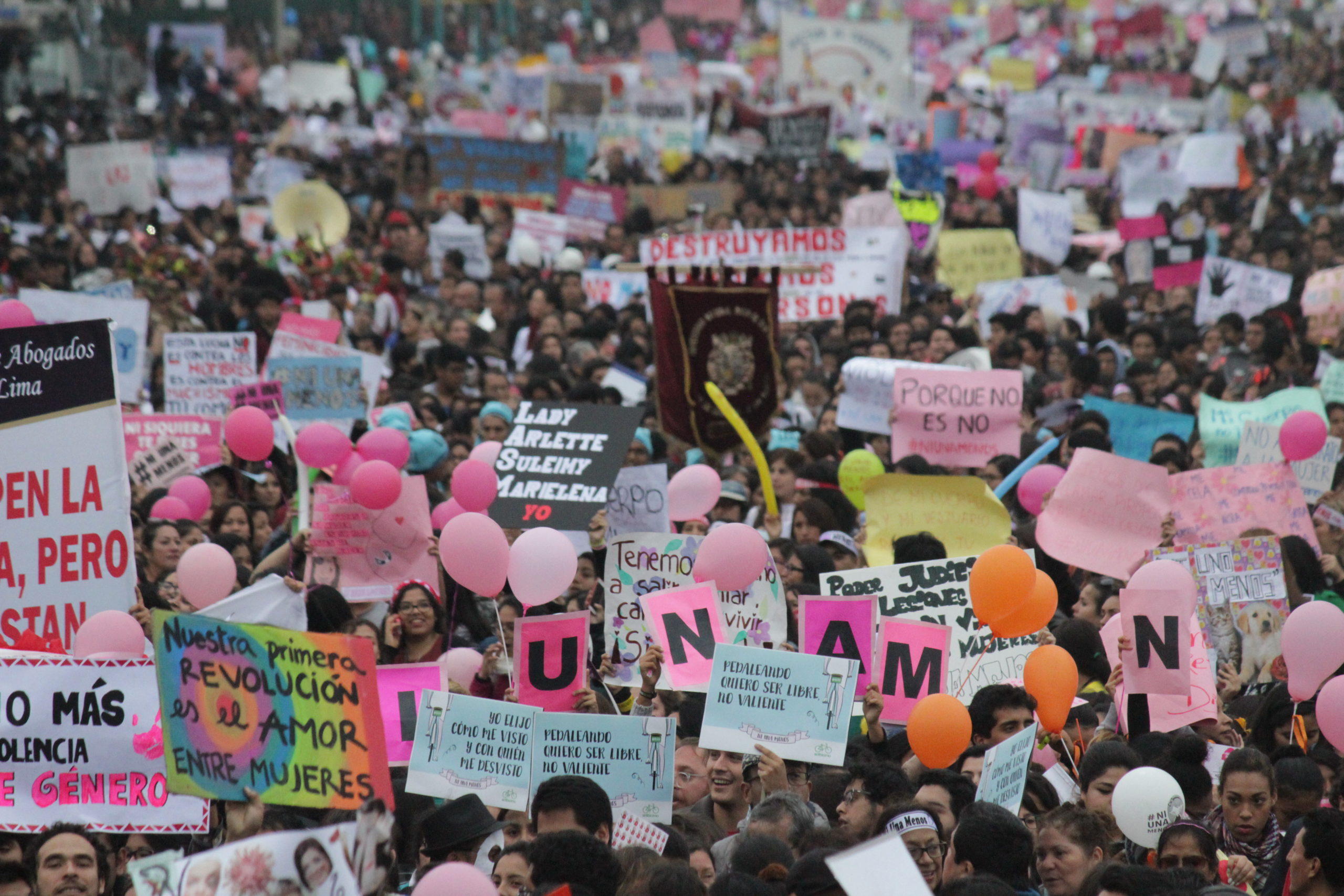What if funders approached grantmaking in the way social movement leaders approach their most pressing challenges? In environments defined by uncertainty, movement leaders assume that even the best-laid plans will encounter sudden storms, impasses, and rough terrain — and sometimes sticking to the plan means squandering big opportunities. So, they embark on new strategies with the confidence, fortitude, and ingenuity to navigate inevitable detours and take advantage of shortcuts that appear along the way.
Recently, the Bulgarian Fund for Women and Fondo Semillas in Mexico have brought about successes by adopting the approach of social movements. In each instance, these funders named and questioned their assumptions and changed course in alignment with the changing political circumstances and by listening to guidance from social movements. They knew that by operating with the wrong assumptions, they ran the risk of setting inaccurate expectations for themselves and their grantees, which would ultimately limit the possibilities of what they could achieve together.
The Bulgarian Fund for Women adapted its grantmaking after funders in Central and Eastern Europe failed to meet the needs of social movements around The Istanbul Convention — a human-rights treaty signed by the Council of Europe in 2011 to prevent gender-based violence. While foundations and governments had supported women’s rights groups to work towards its signing, they didn’t accurately anticipate the funding these same groups would need to push forward its ratification and accountable implementation.
Immediately following the signing, religious and ultra-conservative groups launched a campaign that used disparaging rhetoric about feminists and LGBTQ people to block ratification. Their well-orchestrated communications strategies pushed narratives that simultaneously attacked women’s rights, LGBTQ rights, and abortion rights by framing them all as ‘threats to the traditional family.’ This, in turn, prevented these movements from being able to proactively organise to build broader constituencies.

A Ni Una Menos protest in Lima, Peru. The movement to legalise abortion in Argentina worked with the Ni Una Menos campaign to reframe the criminalisation of abortion as a form of gender-based violence. Photo credit: Lorena Flores Agüero, CC BY-ND 2.0.
Amid the attacks, a cross-movement coalition of human rights, women’s rights, LGBTQ rights, and reproductive rights organisations came together to try to respond to the compounding crises. They knew that to hold on to this hard-won victory, they had to quickly rethink their strategies and priorities, and in order to do that, they needed funders to rethink their project-based approach to grantmaking and provide them with flexible funding.
In the end, being locked into inflexible, short-term grants prevented these groups from having the right kind of resources to respond to the attacks on the treaty. Ten years later, only 34 of the 47 member states of the Council of Europe have ratified the Istanbul Convention. What if funders had viewed the treaty as one of many milestones in an ongoing and interconnected struggle for progressive change — a struggle that required resources well beyond the signing? Imagine what would have been possible if funders had supported cross-movement coalitions long before the backlash began.
In response, in addition to general operating support, the Bulgarian Fund for Women increased its investments in strategic communications and advocacy to bolster organising, feminist political education, and narrative change. They also worked with other funders to right-size their expectations of what progressive movements in the region would be able to achieve after being starved for flexible funding.
‘The crisis triggered a catching-up process where funders had to interrogate the assumptions we were making and how gaps in our grantmaking had contributed to the gaps in movement capacities that were needed at that moment,’ explained Nadejda Dermendjieva, the Executive Director of Bulgarian Fund for Women. ‘We can’t expect groups and movements to do what they haven’t been formed to do, and their formation has been informed by past gaps in funding.’
Across the world in Mexico, Fondo Semillas began to see populist language and tactics emerge across Latin America in ways that mirrored the ultra-conservative groups in Central and Eastern Europe. Through conversations with European women’s funds, they knew they were on the cusp of a struggle that would require them to think differently about who and how they fund. And they knew that cross-movement collaboration and cross-regional knowledge sharing would be key to protecting hard-won gains.
‘It is helpful to think beyond your own horizon,’ explained Tania Turner Sen, the Executive Director of Fondo Semillas. ‘We are fortunate to be part of an international network of women’s funds that have been supporting movements for decades. It has been vital for informing our thinking and providing critical guidance on what works and what doesn’t.’
The crisis triggered a catching-up process where funders had to interrogate the assumptions we were making and how gaps in our grantmaking had contributed to the gaps in movement capacities that were needed at that moment.
Thinking expansively and acting collectively also played a huge role in the successful movement to legalise abortion in Argentina despite repeated attempts of anti-rights actors to block the legislation. Working in a coalition of feminists, reproductive rights organisers, and lesbian activists, and others, the National Campaign for the Right to Legal, Safe and Free Abortion did several things that ensured its success. It linked with the Ni Una Menos campaign to reframe the criminalisation of abortion as a form of gender-based violence and spoke about women’s right to make decisions about their health and well-being as an economic justice issue — both of which made the government responsible for not taking action to end hundreds of preventable deaths.
The cross-movement coalition also used the power of symbolism by creatively adopting the green handkerchief as a simple yet clear sign of solidarity across age, gender, nationality, and other identities that allowed many voices to come together to form a larger movement. The combined use of multiple strategies persuaded politicians that times have changed, younger generations have different priorities, and it is possible to win elections while advocating for legal abortion. And as we have seen, this win in Argentina paved the way for another abortion rights victory in Colombia.
We have seen the benefit of funders engaging in an internal learning process to identify the assumptions that underpin their grantmaking and interrogate the validity of those beliefs. We have seen funders shift from the mindset that the only meaningful change is legislative change and that policy advocacy is the most valued strategy to fund to an understanding that shifting the balance of power often takes decades of intensive trust and relationship building, cross-movement and cross-regional coordination, and multi-pronged strategies that include grassroots organising, political advocacy, and narrative change.
It is helpful to think beyond your own horizon.
We know that the victory in Argentina (and in Colombia more recently) took decades of funding groups and agendas that were complementary, not competing, and consistently committing resources even when it looked like the movement might be losing. Funding groups in ways that encourage activists to work together and take calculated risks sets them up for successes that may seem impossible. But as feminist activist Perla Vasquez said about movements that succeed: ‘We don’t wait for opportunities. We create opportunities.’
These days, most of us in philanthropy still approach grantmaking with the dubious belief that a linear, tightly choreographed strategy will be foolproof in bringing about the outcomes we seek. But, in making that assumption, have we really equipped social movements for success? Are we funding them in a way that strengthens what they need to be prepared for whatever may come after a defeat or a victory? Have we gotten so attached to the singular outcomes that we envision that we’ve prevented more transformational possibilities from emerging that we are unable to conceive?
Each of us has more freedom than we may think, even within the limited authority we have in our institutions. We have to stop using ‘the rules’ as an excuse for not doing the internal work that’s necessary. And we don’t need anyone’s approval to question our assumptions, clarify the implications of the choices we’re making, and imagine how we might make them differently. Movement leaders employ these skills, and funders can use them to transform philanthropy. We invite our colleagues to join us in this exploration to unpack our assumptions and imagine a type of philanthropy that operates in the right relationship with the movements we support.
Annie Hillar is a Co-Director of the Gender Funders CoLab, and Katrin Wilde is the Executive Director of the Channel Foundation.







Comments (0)